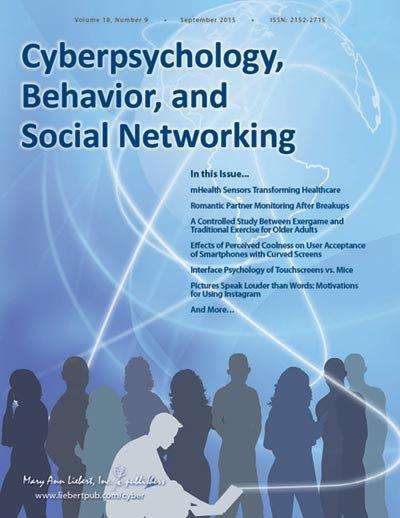What motivates 'Facebook stalking' after a romantic breakup?

Social networking makes it easy to monitor the status and activities of a former romantic partner, an often unhealthy use of social media known as interpersonal electronic surveillance (IES) or, more commonly, "Facebook stalking." Psychological and relationship factors and how individuals cope with the termination of a romantic relationship can help predict their use of online surveillance, according to a study published in Cyberpsychology, Behavior, and Social Networking, a peer-reviewed journal from Mary Ann Liebert, Inc., publishers. The article is available free on the Cyberpsychology, Behavior, and Social Networking website until October 23, 2015.
In the article "," Jesse Fox, PhD, The Ohio State University, Columbus, and Robert S. Tokunaga, PhD, University of Hawai'i at Manoa, Honolulu, report that individuals who were most distressed by a breakup were most likely to monitor their ex-partners online. This behavior could make it more difficult for them to recover. In the study, the authors evaluated associations between factors such as attachment (anxious versus avoidant attachment), investment in the relationship, level of commitment, responsibility for termination of the relationship, emotional distress after the breakup, and seeking relationship alternatives.
"Since stress may trigger problematic internet use, psychologists may wish to assess for increased usage by their patients during periods of stress, such as a relationship's dissolution," says Editor-in-Chief Brenda K. Wiederhold, PhD, MBA, BCB, BCN, Interactive Media Institute, San Diego, California and Virtual Reality Medical Institute, Brussels, Belgium.
Journal information: Cyberpsychology, Behavior, and Social Networking
Provided by Mary Ann Liebert, Inc


















